Faculty/Staff Directory
Search Results
In most cases, please use the last 4 digits of the listed phone numbers when calling from any campus.
A C H J L M Q T V Y
Adjunct Faculty
Traditional Undergraduate Nursing
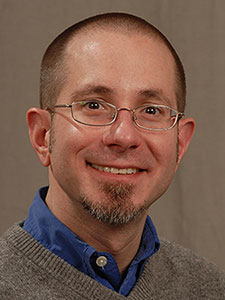
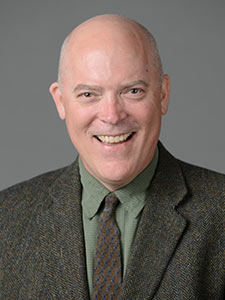

Professor/Chair, English and Communication
English
Office: T4103
Phone: (218) 625-4488
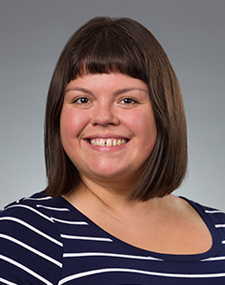


Adjunct Faculty
English
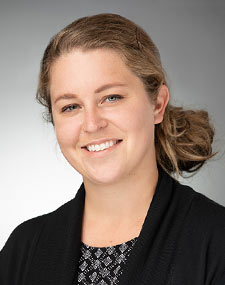
Adjunct Faculty
English
Office: T4134
Phone: (218) 723-6244

Adjunct Faculty
English
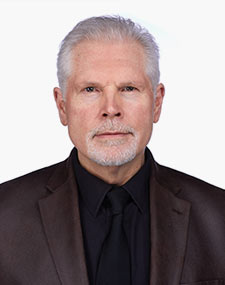
Assoc Professor, ENG/Dir, Warner Reading Series
English
Office: T4150E
Phone: (218) 625-4874
View Site

Assoc Professor, ENG/Dir, Warner Reading Series
English
Office: T4150E
Phone: (218) 625-4874
View Site

James Crane, Ph.D.
James Crane is an Assistant Professor of English. He has a B.A. from Grinnell College and an M.A. and Ph.D. in English Language and Literature from the University of Michigan-Ann Arbor, where he specialized in 18th and 19th century literature, gender studies, and theories of genre. Before arriving at CSS, James taught at the University of Michigan, Albion College, and Loyola University Chicago. His research interests include early American literature, nineteenth-century literature, and transatlantic studies. At CSS, he teaches courses in literature and writing. James writes about early American literature and transatlantic Romanticism. He is at work on a book about seafarers in American and British literature.

William Hodapp, PhD
William Hodapp is a Professor of English. He holds a Ph.D. in English language and literature from the University of Iowa, an M.A. in English from Minnesota State University, Mankato, and a B.A. in Humanities from Saint Mary's University. He has worked at the College since 1994, teaching a range of writing, literature, linguistics, and honors courses. He has also taught in the College's Irish Studies Program in Louisburgh, Ireland, four times (2000, 2006, 2011, 2018). In 2001 the Student Senate awarded him the Tassie McNamara Award for service to students; in 2001-2002 he was a visiting scholar at Wolfson College, University of Cambridge; and in 2012 he was a National Endowment for the Humanities Summer Scholar, participating in a seminar on the early printed book held in Antwerp, London, and Oxford. From January through May, 2015, he was a US Fulbright Scholar to the United Kingdom, working at Durham University, Durham, England. He received the CSS Excellence Award in Scholarly and Creative Activity in 2015.
Bill's research and writing center on medieval and early modern languages, literature, and culture and on cinematic medievalism. Since 1990, he has presented more than ninety papers and lectures at academic conferences and universities in the United States and in Europe and has published thirty journal articles and book chapters and fourteen reviews. In his book The Figure of Minerva in Medieval Literature (Boydell & Brewer, 2019), he examines appearances of the Roman goddess of wisdom in ancient and medieval literary texts. Currently, he is working on two projects: the first dealing with James I of Scotland's narrative poem The Kingis Quair; the second, with connections between liturgy and medieval drama. He serves as referee for several academic journals and has guest-edited issues for three: Studies in Medieval and Renaissance Teaching, Enarratio: Publications of the Medieval Association of the Midwest, and Listening: Journal of Religion and Culture. Bill coordinates the College's minor in Medieval and Renaissance Studies.

Stephanie Johnson, PhD
Professor Stephanie Johnson is Chair of the English and Communication Department. She holds a B.A. from St. Olaf College, an M.A. from the University of Minnesota, and a Ph.D. from the University of Washington. Before joining the faculty in 2010, she taught at the University of Puget Sound and Valparaiso University, where she also held a Lilly Postdoctoral Fellowship. She teaches nineteenth- and twentieth-century British literature, literature by women, and writing, and co-leads the Arts and Culture study abroad experience in London every other year. Her publications include articles in Victorian Literature and Culture, Victorian Poetry, and Literature and Theology, as well as the co-edited essay collection Cultivating Vocation in Literary Studies (Edinburgh UP, 2022).

Guadalupe Linares, PhD
Dr. Lupe Linares is an Assistant Professor of English. She earned her B.A. at Marlboro College and holds both an M.A. and Ph.D. from the University of Nebraska-Lincoln. She teaches courses in Ethnic American Literature and writing, and her scholarship focuses on Chicana/o fiction. She is also a creative writer, and her literary nonfiction appears in Beautiful Flesh: A Body of Essays, which won the 2018 Colorado Book Award for Best Anthology.

Guadalupe Linares, PhD
Dr. Lupe Linares is an Assistant Professor of English. She earned her B.A. at Marlboro College and holds both an M.A. and Ph.D. from the University of Nebraska-Lincoln. She teaches courses in Ethnic American Literature and writing, and her scholarship focuses on Chicana/o fiction. She is also a creative writer, and her literary nonfiction appears in Beautiful Flesh: A Body of Essays, which won the 2018 Colorado Book Award for Best Anthology.

Kevin Quarmby, PhD
Dr. Kevin A. Quarmby, Associate Professor and Rose Warner Endowed Professor of English in the School of Arts and Sciences, is a Shakespeare scholar specializing in Shakespeare and social justice, Shakespeare and performance, and global Shakespeare studies. Prior to his academic career, he was a professional stage, television, and film actor.
Dr. Quarmby was awarded a PhD in English (Shakespeare and Early Modern Drama) by King's College, University of London, and is a Fellow of the Royal Society of Arts. He won the King's College 'Inglis Prize' and gained full Arts and Humanities Research Council funding for his doctoral research. During his graduate studies, he taught English Renaissance Literature at King's College London, followed by University of Notre Dame, St. Lawrence University, and University of California courses, all for their London study-abroad experiences.
On completing his PhD, Quarmby was invited to teach at Shakespeare's Globe Theatre, London, as a Globe Education Lecturer, as well as offering study-abroad Shakespeare courses for Florida State University, Drexel University, and Temple University.
As Associate Tutor for the University of Sussex's English and Drama Department, Quarmby workshopped and directed a production of Ben Jonson's Masque of Queens. He also taught Emory University's Summer Program at the University of Oxford, and was Guest Lecturer at Homerton College, University of Cambridge, teaching Restoration and Long Eighteenth-Century Drama. In the Fall of 2012, Quarmby accepted an Assistant Professorship at Emory University's Oxford College, and in 2017 accepted his present post at The College of St. Scholastica.
Away from the 'physical' classroom, Quarmby is passionate about Shakespeare and social justice. His Shakespeare classes regularly invite outside participants to join his students, while also interacting with academics and practitioners from around the world. During his three-year tenure as Distinguished Visiting Scholar (2011-2014), he received tremendous support from the Claus M. Halle Institute for Global Learning based at Emory University.
Quarmby has published extensively in academic journals, including Shakespeare, Shakespeare Bulletin, ROMARD, Cahiers Élisabéthains, Shakespearean International Yearbook, and twice in Shakespeare Survey. His book, The Disguised Ruler in Shakespeare and his Contemporaries, was shortlisted for the Shakespeare's Globe Book Award 2014, and reissued in paperback by Routledge in 2016. Other publications include chapters in Women Making Shakespeare (Bloomsbury 2013), Shakespeare Beyond English (Cambridge UP 2013), Macbeth: The State of Play (Bloomsbury 2014), The Revenger's Tragedy: The State of Play (Bloomsbury 2017).
In Global and Local Myths in Shakespearean Performance (Palgrave Macmillan 2018), Quarmby analyzes “Shamanistic Shakespeare: Korea’s Colonization of Hamlet,” while in The Arden Research Handbook of Shakespeare and Social Justice (Bloomsbury 2020), he addresses “‘Shakespeare in Prison’: A South African Social Justice Alternative,” and Shakespeare's importance as an educational tool for preventing recidivism.
Quarmby's latest publications continue to explore the pedagogical and political implications of Shakespeare on a global scale. In his 2021 article, “PPE for Shakespearians: Pandemic, Performance and Education,” for the Cambridge University Press annual edition of Shakespeare Survey, Volume 74, Quarmby analyzes how alternative performance technologies forced on theater producers by the COVID-19 pandemic translate into the Shakespeare classroom. On the other hand, Quarmby's 2022 article, “Anti-Shakespeare Rhetoric and Colombia’s ‘Theatre for Peace’,” published in Shakespearean International Yearbook, studies the significance of Shakespeare in post-conflict Colombia for countering the gender-based violence that has dominated this troubled nation for several generations. Quarmby is grateful to The College of St. Scholastica for supporting his research and published scholarship, and for recognizing the social justice imperative at its core.

Kevin Quarmby, PhD
Dr. Kevin A. Quarmby, Associate Professor and Rose Warner Endowed Professor of English in the School of Arts and Sciences, is a Shakespeare scholar specializing in Shakespeare and social justice, Shakespeare and performance, and global Shakespeare studies. Prior to his academic career, he was a professional stage, television, and film actor.
Dr. Quarmby was awarded a PhD in English (Shakespeare and Early Modern Drama) by King's College, University of London, and is a Fellow of the Royal Society of Arts. He won the King's College 'Inglis Prize' and gained full Arts and Humanities Research Council funding for his doctoral research. During his graduate studies, he taught English Renaissance Literature at King's College London, followed by University of Notre Dame, St. Lawrence University, and University of California courses, all for their London study-abroad experiences.
On completing his PhD, Quarmby was invited to teach at Shakespeare's Globe Theatre, London, as a Globe Education Lecturer, as well as offering study-abroad Shakespeare courses for Florida State University, Drexel University, and Temple University.
As Associate Tutor for the University of Sussex's English and Drama Department, Quarmby workshopped and directed a production of Ben Jonson's Masque of Queens. He also taught Emory University's Summer Program at the University of Oxford, and was Guest Lecturer at Homerton College, University of Cambridge, teaching Restoration and Long Eighteenth-Century Drama. In the Fall of 2012, Quarmby accepted an Assistant Professorship at Emory University's Oxford College, and in 2017 accepted his present post at The College of St. Scholastica.
Away from the 'physical' classroom, Quarmby is passionate about Shakespeare and social justice. His Shakespeare classes regularly invite outside participants to join his students, while also interacting with academics and practitioners from around the world. During his three-year tenure as Distinguished Visiting Scholar (2011-2014), he received tremendous support from the Claus M. Halle Institute for Global Learning based at Emory University.
Quarmby has published extensively in academic journals, including Shakespeare, Shakespeare Bulletin, ROMARD, Cahiers Élisabéthains, Shakespearean International Yearbook, and twice in Shakespeare Survey. His book, The Disguised Ruler in Shakespeare and his Contemporaries, was shortlisted for the Shakespeare's Globe Book Award 2014, and reissued in paperback by Routledge in 2016. Other publications include chapters in Women Making Shakespeare (Bloomsbury 2013), Shakespeare Beyond English (Cambridge UP 2013), Macbeth: The State of Play (Bloomsbury 2014), The Revenger's Tragedy: The State of Play (Bloomsbury 2017).
In Global and Local Myths in Shakespearean Performance (Palgrave Macmillan 2018), Quarmby analyzes “Shamanistic Shakespeare: Korea’s Colonization of Hamlet,” while in The Arden Research Handbook of Shakespeare and Social Justice (Bloomsbury 2020), he addresses “‘Shakespeare in Prison’: A South African Social Justice Alternative,” and Shakespeare's importance as an educational tool for preventing recidivism.
Quarmby's latest publications continue to explore the pedagogical and political implications of Shakespeare on a global scale. In his 2021 article, “PPE for Shakespearians: Pandemic, Performance and Education,” for the Cambridge University Press annual edition of Shakespeare Survey, Volume 74, Quarmby analyzes how alternative performance technologies forced on theater producers by the COVID-19 pandemic translate into the Shakespeare classroom. On the other hand, Quarmby's 2022 article, “Anti-Shakespeare Rhetoric and Colombia’s ‘Theatre for Peace’,” published in Shakespearean International Yearbook, studies the significance of Shakespeare in post-conflict Colombia for countering the gender-based violence that has dominated this troubled nation for several generations. Quarmby is grateful to The College of St. Scholastica for supporting his research and published scholarship, and for recognizing the social justice imperative at its core.

Ryan Vine, MFA
Ryan Vine is the author of two collections of poetry: The Cave (Texas Review Press, September 2025) and To Keep Him Hidden (Salmon, 2018; 2nd ed. 2019), winner of the Northeastern Minnesota Book Award; and the chapbooks WARD (Texas Review Press, 2021), finalist for the Eric Hoffer Award; and Distant Engines (Backwaters Press, 2006), winner of a Weldon Kees Award.
His poems have appeared or are forthcoming in The American Poetry Review, Ploughshares, The Rumpus, Blackbird, The Southern Review, Poetry Ireland Review, Poetry Daily, Verse Daily, and on National Public Radio's The Writer's Almanac.
His honors include the Greensboro Review’s Robert Watson Poetry Prize, 2nd Prize in the National Association of Teachers of Singing Art Song Competition, an Artist Initiative Grant and a Creative Support Grant from the Minnesota State Arts Board, three McKnight/ARAC Career Development Grants, a Walter E. Dakin Fellowship in Poetry from the Sewanee Writers' Conference, and he has been a finalist or nominee for numerous others, including—selected by former US Poet Laureate Robert Pinsky—the Dorset Prize.
He's been invited to read at universities, bookstores and festivals across the world: Milkweed’s Open Book, Minneapolis, Minnesota; Synagogue for the Arts, NYC; Clifden Arts Festival, Clifden, Ireland; Coffman Memorial Union, University of Minnesota; University of the South, Sewanee, Tennessee; Poetry Ireland Headquarters, Dublin, Ireland; Zenith Bookstore, Duluth, Minnesota; and Carnegie Hall, NYC, to name a few.
Suzanne Yunis, PhD
Suzanne Yunis (Ph.D., Case Western Reserve University) is Associate Professor of English at the College of St. Scholastica, where she has taught since 1989. From 1997 to 2000 she was director of White Water Writers Workshop at the Institute for Writing and Thinking at Bard College in Annandale-on-Hudson, New York. From 2000-2015 she was co-director of Imagining History, a grant project in northern Minnesota which enabled her to guide local teachers through family reminiscence, historical research and writing. Through this experience she witnessed the healing power of writing and sharing stories, and saw how narratives detailing family trauma and triumph could move writers toward a measure of peace and their audiences toward compassion. More recently, her participation in “The Examined Life Conference,” held annually at the University of Iowa Carver College of Medicine, has reinforced her belief in the therapeutic efficacy of both literature and personal writing in the healing professions. In the Health Humanities Program, she helps students and future healthcare professionals find the words, sentiments and narrative arcs to shape stories that wrestle meaning from pain—their own and their patients’.

